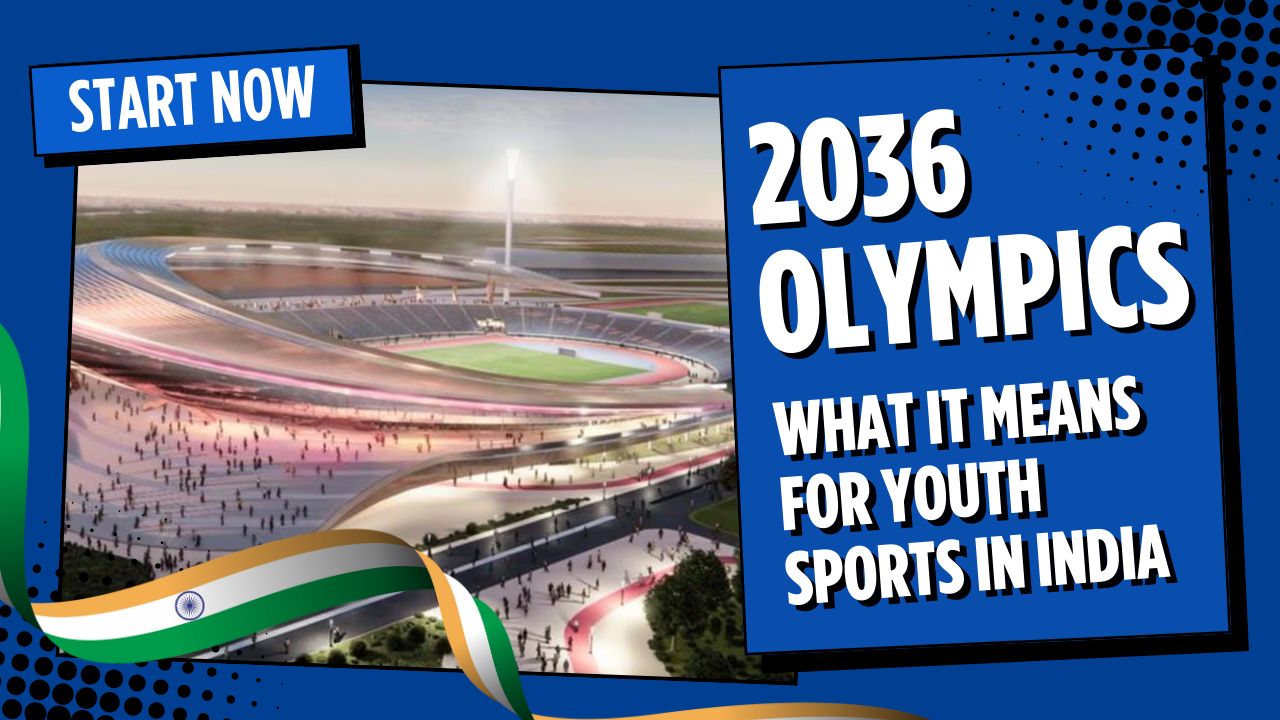Introduction
India is buzzing with anticipation around the possibility of hosting the 2036 Olympics. While official confirmation is yet to come, the conversation itself has already sparked excitement across the nation. Beyond the grandeur of stadiums, ceremonies, and medals, one of the most critical aspects of this vision lies in youth sports development. The future of Indian sports rests in how well we prepare our young athletes today to compete at global levels tomorrow.
In this blog, we explore what the 2036 Olympics could mean for youth Olympic training in India and how this moment can transform the entire sports future of India.
The Growing Importance of Youth Olympic Training in India
For India to shine at the Olympics, the focus must begin at the grassroots. Currently, sports like cricket dominate the country’s attention, but with global aspirations, India must build systems that support multi-sport excellence.
Youth Olympic training in India will play a pivotal role in:
-
Identifying talent early through school-level and academy programs.
-
Nurturing skills with advanced coaching, nutrition, and mental conditioning.
-
Providing exposure via regional, national, and international tournaments.
Sports such as athletics, badminton, wrestling, hockey, boxing, and swimming have already proven India’s potential. With structured youth development, these sports can produce consistent Olympic medalists by 2036.
How the 2036 Olympics Can Shape the Sports Future of India
1. Infrastructure Expansion
Preparing for 2036 will drive massive investment in stadiums, training centers, and sports complexes across India. This infrastructure won’t just serve professional athletes but also encourage youth participation at the grassroots.
2. Policy & Government Support
The government is already pushing programs like Khelo India and Target Olympic Podium Scheme (TOPS). With the Olympics on the horizon, such initiatives will expand, providing scholarships, sponsorships, and global-level coaching access for young talent.
3. Rise of Multi-Sport Culture
Currently, cricket overshadows most other sports. Hosting the Olympics will balance the scales by popularizing athletics, gymnastics, swimming, and track events—sports where youth need early grooming. This cultural shift will define the sports future of India.
4. Private Academies & Sports Complexes
Institutions like Nahata Sports Complex, Gopichand Badminton Academy, JSW Sports facilities, and Inspire Institute of Sport are already laying foundations. By 2036, these academies will be the backbone of India’s Olympic training ecosystem, blending professional coaching with holistic athlete development.
5. Career Opportunities in Sports
Beyond athletes, the sports economy will create opportunities in coaching, physiotherapy, nutrition, sports psychology, management, and event organization. For youth, this means a much broader spectrum of career opportunities in sports.
Challenges India Must Overcome
While the vision is inspiring, certain barriers must be addressed to secure India’s Olympic future:
-
Accessibility: Sports must reach rural and underprivileged communities.
-
Funding: Many young athletes still struggle with finances for training and equipment.
-
Awareness: Parents and schools must prioritize sports as much as academics.
-
Consistency: Long-term planning is required; short-term enthusiasm won’t suffice.
The Role of Youth in India’s Olympic Journey
Youth athletes are not just participants—they are flagbearers of India’s global identity. With early exposure to international standards, mental resilience training, and access to modern facilities, they can turn India’s Olympic dream into reality.
Parents, schools, and communities must work hand in hand with government and private academies to create a culture where sports thrive.
Conclusion
The 2036 Olympics represents more than an event—it is a vision for India’s sporting future. It is a chance to build a nation where young athletes get the recognition, resources, and respect they deserve. With structured youth Olympic training in India, improved infrastructure, and collective effort, the country can rise as a multi-sport powerhouse.
The sports future of India will no longer be about just celebrating individual victories but about creating a legacy of athletic excellence that inspires generations.

